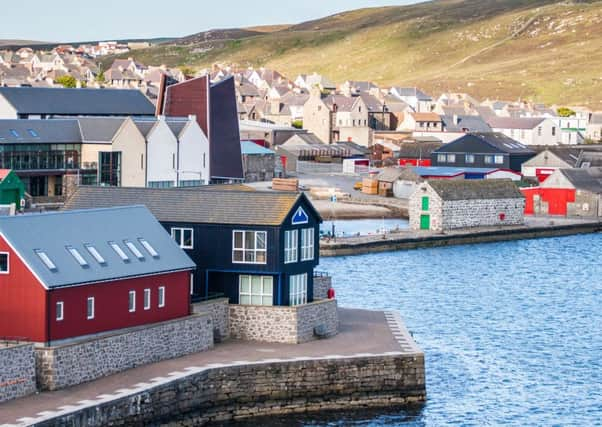Time for SNP to make good on those by-election promises - Brian Wilson


It was the last lap in a campaign which had seen Ms Sturgeon make three visits with scores of ministers, MPs and MSPs in her wake. A little more sensitivity might have suggested that the law of counter-productivity would set in – as it surely did.
Most voters in Shetland did not consider Mr Murrell’s “three great reasons” persuasive and the hype about an impending Nationalist triumph proved grossly inflated – which makes it no less important to revisit the commitments made.
Advertisement
Hide AdAdvertisement
Hide AdMost urgently, Shetlanders will wish to hear more of the promise to “cut your travel costs”.
Surely, they are saying in unison, this was a promise rather than a bribe, totally within the gift of the Scottish Government, so what will happen now?
In an eve-of-poll leaflet, the Nationalist candidate, Tom Wills, was specific about how travel costs were to be cut – a “20 per cent islander discount on Northlink cabins” and abolition of parking charges at (Scottish Government-owned) Sumburgh airport.
Furthermore, he promised to “be on the phone to Nicola Sturgeon on Friday morning … to progress my plan to cut your travel costs”.
We can only hope Mr Wills made the call, preferably with Mr Murrell also on the line, in order to progress their shared promises.
There is, of course, nothing new about “islander discounts”. In 2001, the Labour-LibDem administration introduced the Air Discount Scheme which has been of huge benefit to island communities.
It means for instance that a Shetlander who needs to travel from Edinburgh to Sumburgh this weekend, perhaps for a family emergency, would pay £212.84 return rather than an eye-watering £417.04 without the discount. Still not cheap but a very significant difference.
For the past decade, it has been open to SNP ministers to apply the same principle to the Aberdeen-Shetland ferry service which is by far the longest and most expensive within Scottish waters. It has taken a by-election for the promise to emerge. What will happen to it now?
Advertisement
Hide AdAdvertisement
Hide AdOf wider long-term national interest was the SNP’s position on Brexit and EU membership. At the 2016 referendum, 43.5 per cent of Shetland voters supported leaving the European Union, mainly because of the fishing industry. So the usual strident pro-EU sentiments had to be tempered accordingly.
In his eve of poll leaflet, Mr Wills set out an SNP position which should be filed for future reference: “No one is saying the European Union is perfect. I’ll fight tooth and nail to scrap the Common Fisheries Policy and make sure our local boats are protected”. Really?
As I understand it, the SNP’s offer nationally is to become “independent within the EU” – already a slogan laced with difficulties. By then, we would border with a non-EU state; other EU countries with secessionist movements would block it, and so on. Are we also being told the SNP’s starting position would be “to scrap the Common Fisheries Policy”? Can Mr Murrell and Ms Sturgeon kindly confirm?
Then we have the whole euphemism of Shetland being “at the heart of Holyrood” which was widely interpreted less as a promise than a threat that if Shetlanders did not vote SNP, there would be very little left for them in the pork barrel. It is a dubious way to run a small country.
The mistake of Nationalists is to think of Scotland as a single entity which must be dragooned into a shared ambition – i.e. their own. In reality, it is a patchwork of different identities, cultures and economic conditions which deserve respect and understanding rather than the blunderbuss of a sudden ministerial invasion.
If true to its name, devolution could involve ongoing ministerial interest in the detailed needs of every Scottish community – including those which face the particular challenges of peripherality and population decline. In Shetland, the outbreak of sudden interest and belated promises was all too easily seen through.